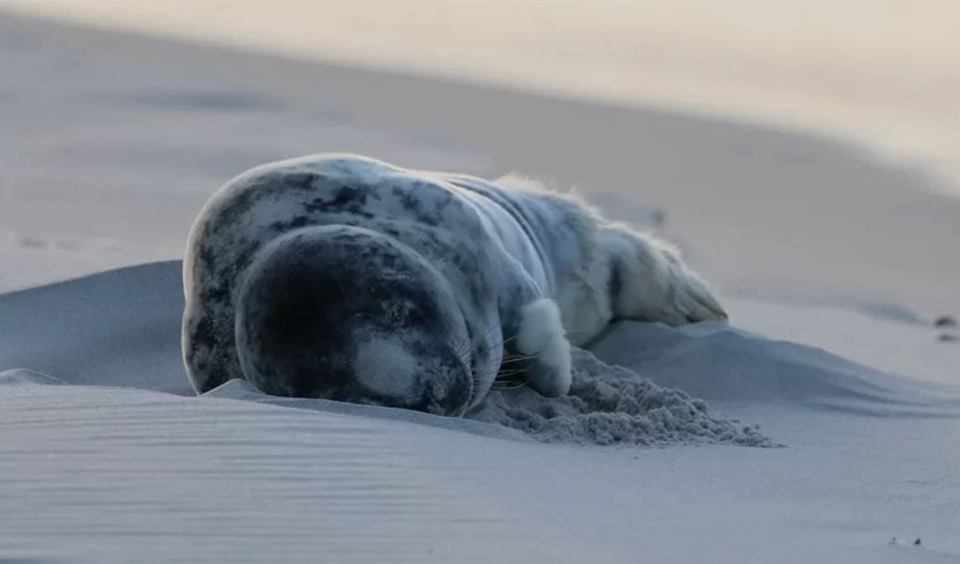Between 28 and 31 May, 35 dead seals were found washed up on Poland’s Baltic Sea coast by volunteers from the World Wild Fund for Nature (WWF). That is the largest number even found over a single weekend.
“This is a record,” said Paweł Żmuda of the WWF’s Blue Patrol (Błękitny Patrol), adding that “it was a black weekend for seals,” which are a protected species in Poland. He noted that the figure is particularly significant given that there are only around 400 seals living on the Polish coast.
The cause of death of the animals is not known for certain, but Wojciech Czuchryta, also from the Blue Patrol, told local newspaper Głos Pomorza that most of the reports came from places where military manoeuvres have been taking place.
Czuchryta noted that seals use echolocation and are sensitive to loud noises. They can be stunned by gunshots from military exercises. Żmuda believes that the animals could also have died as a result of getting tangled in fishing nets, swimming into ship propellers, or from disease
Most of the discovered bodies – largely young and at various stages of decomposition – were found on the 300km strip of coastline between the holiday towns of Łeba and Międzyzdroje. A few had also been washed up on the Hel peninsula and two on the Vistula Spit in the northeast.
The bodies of the seals, which are usually cleaned up by local authorities, may also have been left out on beaches for longer than usual. In past years, local officials have disagreed over who should be responsible for the cleanup of carcasses, which can cost up to 600 zloty each, reports Głos Pomorza.
“Our volunteers responded to every request, made a visual inspection and measurements of the body,” said Żmuda. More than 200 people volunteer for the Blue Patrol, which helps marine animals on the Polish coast.
According to the WWF, an estimated 100,000 seals once lived in the Baltic Sea, but their numbers have now fallen to less than half their former level.
The University of Gdańsk runs a seal sanctuary on the tip of the Hel peninsula, which it uses for research, breeding and caring for injured seals. The facility is also open to the public as an aquarium receiving approximately half a million visitors annually.
It's got so cold in Poland that even the seals' whiskers at the aquarium in Hel, a town on the Baltic coast, have turned into icicles.
Hel has literally frozen over. pic.twitter.com/ruJbaEiGVz
— Notes from Poland 🇵🇱 (@notesfrompoland) February 28, 2018
Main image credit: WWF Polska

Maria Wilczek is deputy editor of Notes from Poland. She is a regular writer for The Times, The Economist and Al Jazeera English, and has also featured in Foreign Policy, Politico Europe, The Spectator and Gazeta Wyborcza.




















